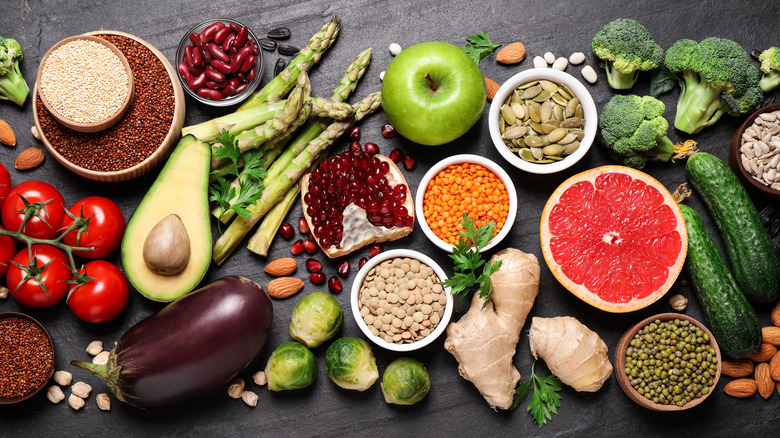The Vitamins You Should Be Taking In Your 50s
The vitamin aisle at any supermarket or drug store is normally stocked with a dizzying number of different labels. For someone who is not a professional nutritionist or dietitian, it can be overwhelming to see all the options. This can make anyone, especially folks in their later years, ponder the benefits of taking some (or all) of them. That said, there are definitely a few nutritional concerns that people in their 50s must be aware of.
At the top of the list is calcium. The bones that you spent the first four decades of your life building and strengthening still have to be cared for. "Now, instead of building bone, you are preserving the bone you already have," nutritionist Stephanie Schiff, RDN from Northwell Health's Huntington Hospital in New York, told The Healthy.
In their 50s, women, in particular, become more vulnerable to osteoporosis, or the loss of bone density. Osteoporosis raises the risk for bone fractures and breaks. Getting the right amount of calcium, which is 1,200 mg per day for individuals in their fifth decade of life, is an essential step in preventing osteoporosis. Vitamin D, which helps the body absorb calcium, is also very important during this stage of life.
Most or all of the vitamins we need should come from food
One other vitamin to be aware of is vitamin B12. It's estimated that 43% of older adults are deficient in this vitamin, which is vital for the regulation of blood, nerve, and genetic health (via AARP).
Knowing the importance of adequate vitamin intake for health makes it tempting to just buy every bottle lining the store shelves. That's not what most health experts recommend, though. After all, it's easy to get too much of a good thing. Most people can obtain all the vitamins they need for optimum health through a healthy, nutrient-dense, and well-balanced diet.
If you're concerned that you might be low in certain vitamins, your doctor can easily test for deficiencies and recommend a safe dose of supplementation. However, nutritionist Stephanie Schiff states that as vitamin sources, whole foods are "always better than supplements because, with a supplement, we are just extracting a single nutrient. Whole foods contain vitamins, minerals, and fiber — all of which work synergistically" (via The Healthy).


